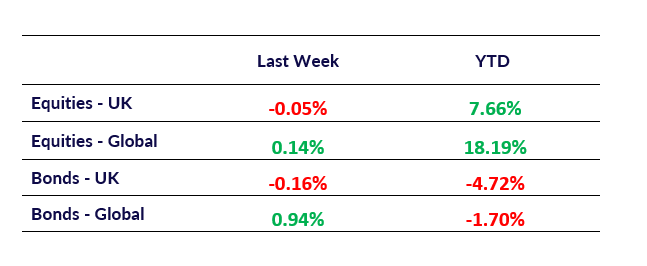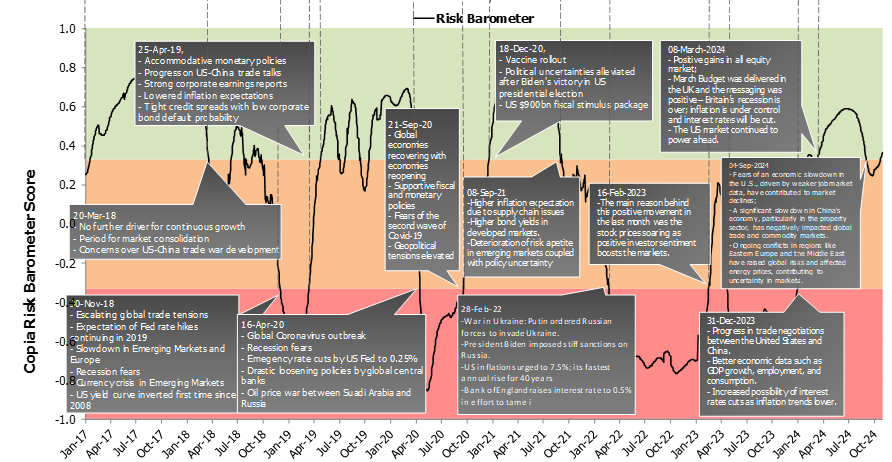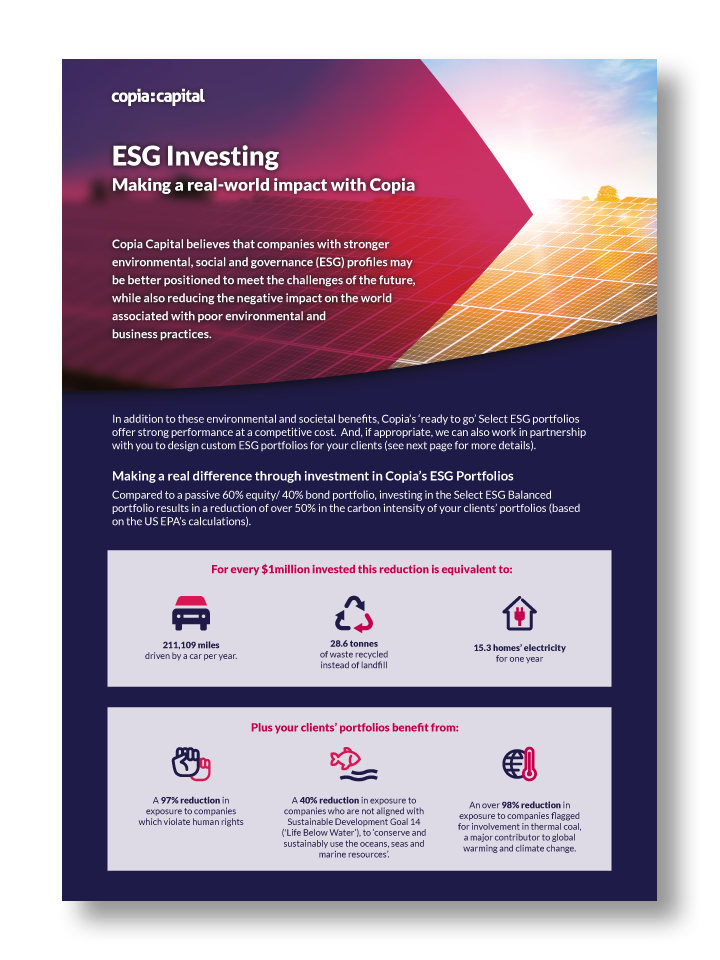The infoshot to help kick-start your week
Last Week
- US Fed Chair Jerome Powell has stated that ongoing economic growth, a strong job market, and inflation above the 2% target mean there is no urgency to lower interest rates. He emphasised that inflation remains on a sustainable path to 2%, allowing a gradual shift toward a neutral monetary policy. However, the timeline for this transition and the neutral rate level remains uncertain, especially given economic strength and the potential impact of new tariffs, tax policies, and immigration changes. Powell noted no immediate signs prompting faster rate cuts, signalling a cautious approach to future adjustments. Treasury yields responded accordingly.
- China is solidifying its influence in Latin America with the inauguration of the Chancay megaport on Peru’s coast, backed by state-owned Cosco Shipping. President Xi Jinping attended the event, underscoring the port’s strategic importance. The $3.5 billion project is poised to reshape trade routes, allowing goods from countries like Brazil and Chile to bypass North America and reach Asia faster, cutting shipping times from 35 to 23 days. This development coincides with Trumps election win and his focus on high tariffs, including promises of up to 60% on Chinese goods. Experts like Monica de Bolle from the Peterson Institute highlight this shift in power dynamics as Latin America increasingly engages with Beijing. While the port boosts trade, concerns grow over cheap Chinese imports pressuring local industries, prompting policy changes in Chile and Brazil.
- Mortgage costs are rising despite the recent Bank of England interest rate cut from 5% to 4.75%. The average two-year fixed mortgage rate now stands at 5.5%, while five-year deals average 5.22%. Major lenders like Barclays, HSBC, and NatWest have increased rates, creating challenges for borrowers expecting a consistent decline. The Bank’s cautious outlook on future rate cuts and recent Budget spending plans, which risk inflation, have influenced lenders’ pricing. Fixed-rate mortgages dominate the market, and many borrowers with lower-rate deals will face higher costs as their terms expire. First-time buyers also feel the pressure, with affordable options becoming scarcer. Mortgage rates are influenced not just by the current base rate but by expectations of future rates. Markets now anticipate a “higher for longer” trend, with gradual rate reductions likely. While rates aren’t skyrocketing as they did in 2023, borrowing remains costly for most households.
Market Pulse

Coming Up
- UK BoE Gov Bailey speech, Tuesday 19th November 2024 at 10:00am
- UK CPI data, Wednesday 20th November 2024 at 7:00am
- US Initial Jobless Claims, Thursday 21st November 2024 at 1:30pm
- UK PMI Data, Friday 22nd November 2024 at 9:30am

Notice:
For professional advisers only, Copia does not provide financial advice, and the contents of this document should not be taken as such. The performance of each asset class is represented by certain Exchange Traded Funds available to UK investors and expressed in GBP terms selected by Copia Capital Management to represent that asset class, as reported at previous Thursday 4:30pm UK close. Reference to a particular asset class does not represent a recommendation to seek exposure to that asset class. This information is included for comparison purposes for the period stated, but is not an indicator of potential maximum loss for other periods or in the future.Open document settingsOpen publish panel


